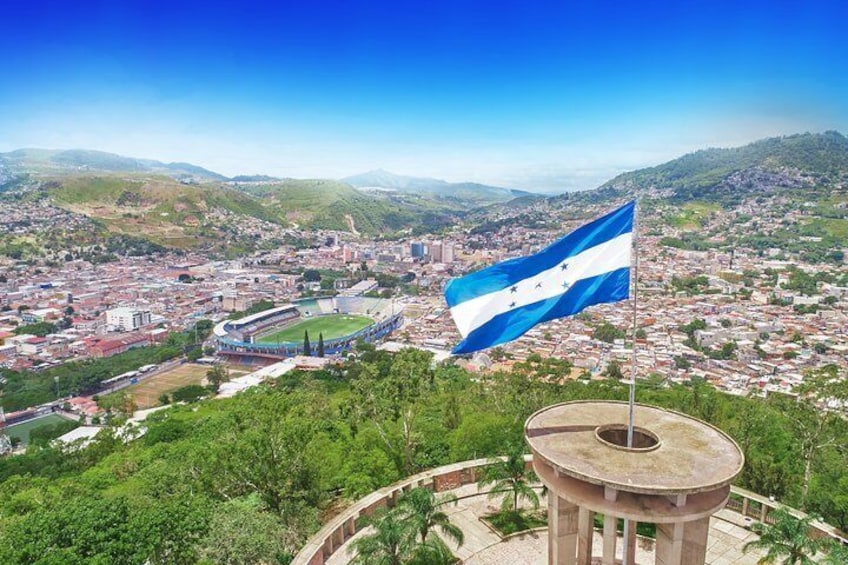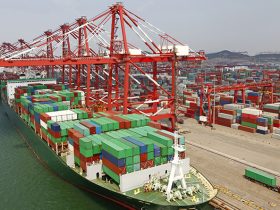
Honduras’s main businesses
Honduras has a diversified economy that draws from several sectors, including agriculture, manufacturing, and services. Here’s a deeper look at its main businesses and industries:
1. Agriculture and Agribusiness
Agriculture plays a foundational role in Honduras’s economy, contributing significantly to both employment and GDP. Key crops include coffee, bananas, and palm oil, which are among the country’s primary exports. Honduran coffee, known for its quality, has a significant place in the global market, with the U.S., Europe, and Asia as top destinations. The banana industry, historically controlled by U.S.-based corporations like Chiquita and Dole, has been integral to the country’s economy for over a century. The palm oil industry is also expanding rapidly, particularly in regions like the Aguán Valley. Other important agricultural products include sugar, melons, pineapples, and shrimp, which contribute to food exports and local food security.
2. Manufacturing and Maquiladoras (Assembly Plants)
The manufacturing sector, especially maquiladora plants, is a cornerstone of the Honduran economy. These factories produce textiles, garments, electronics, and automobile parts, often for U.S.-based companies. Honduras is one of Central America’s largest garment exporters to the United States, benefiting from trade agreements like the Dominican Republic-Central America Free Trade Agreement (CAFTA-DR). The maquila sector provides numerous jobs and boosts local economies, especially in areas like San Pedro Sula and Choloma. With free trade zones and low labor costs, Honduras has become an attractive location for foreign direct investment in the manufacturing sector.
3. Tourism
Honduras has significant potential in tourism due to its rich biodiversity, beautiful beaches, ancient ruins, and the second-largest coral reef system in the world—the Mesoamerican Barrier Reef, near the Bay Islands. The Bay Islands, particularly Roatán, Utila, and Guanaja, attract tourists with their diving and snorkeling spots. Eco-tourism is also growing in popularity, with places like La Tigra National Park and the Río Plátano Biosphere Reserve offering jungle treks and wildlife exploration. Ancient Mayan ruins at Copán are a UNESCO World Heritage site and another draw for tourists interested in history and culture. Although the sector has faced challenges due to security issues and natural disasters, it remains a key growth area.
4. Mining and Natural Resources
Mining, although a smaller part of the economy, has potential for expansion. Honduras is rich in gold, silver, lead, zinc, and other minerals. Gold mining has traditionally been prominent, with companies like Aura Minerals operating in the country. However, environmental concerns and land rights issues with local communities have created tensions in the sector. In recent years, there has been increased attention to environmentally responsible mining practices and policies to protect local communities. The country also has untapped resources in other minerals, potentially fueling growth if managed sustainably.
5. Financial Services and Banking
The financial services sector is a growing industry in Honduras, serving both individual and business needs. Key players include local banks such as Banco Ficohsa and Banco Atlántida and international institutions like Citibank, which provide services ranging from loans and savings accounts to investment products. Microfinance institutions are also significant in supporting small and medium-sized enterprises (SMEs) and improving financial inclusion, especially in rural areas. While the banking sector remains relatively small compared to more developed economies, it is expanding steadily, partly driven by remittances from Hondurans living abroad.
6. Telecommunications and Technology
Telecommunications is another expanding sector, with companies like Tigo and Claro providing mobile, internet, and cable services. With a young population and growing access to mobile technology, the country has seen an increase in the use of mobile payments and other digital services. However, internet penetration remains relatively low in rural areas, so improving infrastructure could provide significant economic benefits. Technology and software development are in their infancy in Honduras but are growing, with potential in areas like business process outsourcing (BPO) and call centers.
7. Energy
Honduras is investing in renewable energy, with a focus on hydroelectric, solar, and wind energy. Given its rivers and sunny climate, the country has made significant strides in solar and hydroelectric projects to reduce dependency on fossil fuels. The government has partnered with international companies to build solar farms and hydroelectric dams, seeking energy self-sufficiency and environmental sustainability. Renewable energy projects create jobs and provide cheaper and cleaner energy for Hondurans, though challenges remain in balancing development with environmental conservation and community needs.
8. Retail and Commerce
Retail, including local and international supermarkets, clothing, and consumer goods stores, is important to the Honduran economy. With an increasing urban population and the rise of middle-class consumers, large retailers like Walmart have established a presence in Honduras. Small businesses are also a vital part of the retail landscape, with markets and local shops providing goods and services across cities and rural areas alike. The retail sector faces challenges such as economic inequality and low consumer purchasing power but remains resilient.
Challenges and Future Prospects
Honduras’s economy faces several challenges, including crime, corruption, and economic inequality. However, ongoing reforms, especially in sectors like renewable energy and eco-tourism, present opportunities for sustainable growth. By focusing on responsible agriculture, tourism, and renewable energy, Honduras is seeking to diversify its economy and create stable jobs for its citizens.



Leave a Reply